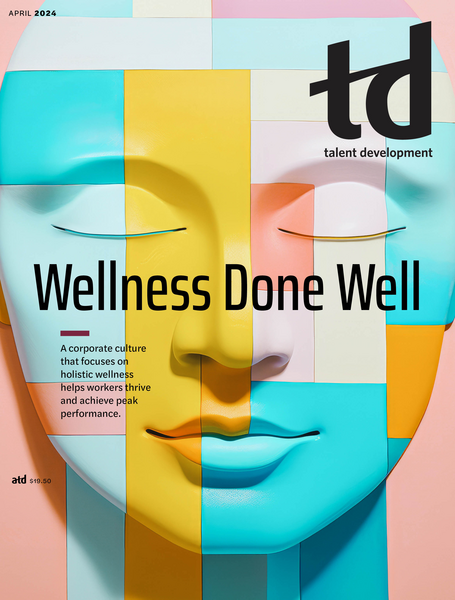TD Magazine Article
The Green Gap
Workers with green skills are increasingly difficult for employers to find.
Mon Apr 01 2024

Only one out of every eight workers globally has more than one green skill—the knowledge, soft and technical abilities, values, and attitudes needed to live in, develop, and support a sustainable society—according to a 2024 ManpowerGroup whitepaper, Building Competitive Advantage With A People-First Green Business Transformation. That's a big problem for the 70 percent of employers who are "urgently" recruiting or planning to recruit green talent.
To accumulate data for the whitepaper, ManpowerGroup surveyed nearly 39,000 employers and more than 5,000 workers around the world. The research reveals the biggest roadblocks that employers cite to hiring and retaining more workers with green skills are finding qualified candidates, creating effective reskilling programs, and identifying transferable skills.
"As companies accelerate their sustainability efforts, it's critical we bring people along on the journey," explains Riccardo Barberis, ManpowerGroup Northern Europe Region president. "Investments in green technology will only get us halfway if employers fail to properly skill and reskill workers to operate in a greener future. Prioritizing workforce development must be a core pillar of net-zero strategies."
It will be a long road to net zero, however. A 2022 Salesforce survey of 1,297 workers shows that 88 percent of employees believe their companies invested little in sustainability training, despite 64 percent of those surveyed also working in roles related to sustainability.
"Governments must work together with companies, schools, colleges, and other learning and training institutions to create a flexible lifelong learning environment that facilitates the reskilling and upskilling of workers," ManpowerGroup's whitepaper explains.
Employers looking to attract talent should note that younger generations value sustainability efforts as more than corporate bluster. With 2023 registering as the warmest year on record, Gen Z employees—people born between 1997 and 2012—are trying to do their part. According to Building Competitive Advantage, 75 percent of Gen Z workers research prospective employers' green reputations, and 46 percent said it affects the likelihood of them choosing to work for a particular company.

